41 hidden allergens are always listed on labels
How to Make Sense of Allergy Warning Labels on Foods According to the FDA, eight foods are recognized by law as major food allergens. Although over a hundred different foods are known to cause allergies, these eight account for over 90% of cases of food allergies: 1. Cow's milk 2. Eggs 3. Fish 4. Shellfish 5. Tree nuts 6. Peanuts 7. Wheat 8. Soybeans What Are Hidden Allergens? - TLC Medical There are allergens all around us - in the air we breathe, in the foods we eat, and even in the clothes, we wear. These hidden allergens can bring on serious attacks than can land you in the ER, so it's important for allergy sufferers to be extra diligent, especially when trying new things. Where […]
Update on hidden food allergens and food labeling - PubMed Furthermore, food packaging and formulation errors, ingredient switching, and foods not covered under the FALCPA were also found to be sources of hidden food allergens. There are many ways in which hypersensitive individuals can be exposed to potentially dangerous allergens despite careful avoidance.

Hidden allergens are always listed on labels
Must allergens be declared on labels? - USDA Must allergens be declared on labels? Jul 17, 2019 Knowledge Article Yes. All food products containing two or more ingredients are required by federal regulations to bear an ingredients statement listing all ingredients by common or usual name in descending order of predominance. Top Food Allergens and Hidden Sources - US News & World Report Peanuts are legumes (similar to soy), while tree nuts are nuts. You can be allergic to peanuts, but not tree nuts, and vice versa. The list includes almonds, cashews, walnuts, Brazil nuts ... Allergens, sub-allergens and hidden allergens - what are they? The sub-allergens in this category are wheat, barley, oats, rye, kamut and spelt. It is important to have a conversation with the customer to reassure and support them. Often, if a person has been diagnosed with a nut allergy, they may avoid all nuts just in case. People with severe nut allergies might even choose to avoid products that state ...
Hidden allergens are always listed on labels. 15 Does Caesar Salad Dressing Have Hidden Allergens Is hidden allergens are always listed on labels? But some allergens aren't on the label But the food was left off the list of major food allergens in the labeling law passed by Congress. Manufacturers do not have to print a "contains sesame" message. It may even be hidden under "natural flavors" or "spices" on the ingredients label. The Scare of a Hidden Food: Read Labels Carefully - North Texas The U.S. Food and Drug Administration (FDA) requires that food labels list all ingredients derived from the eight most common food allergens: milk, eggs, fish, shellfish, tree nuts, peanuts, wheat, and soy. But that doesn't mean the ingredient label will list the food allergen directly. Hidden food allergies for food ingredients can turn up ... Hidden Allergens | SupermarketGuru Caramel color, as defined by the Food and Drug Administration (FDA), is the result of heat treatment to one or more of the following: dextrose (corn sugar), invert sugar, lactose (milk sugar), malt syrup (usually from barley malt), molasses (from cane), starch hydrolysates and fractions thereof (can include wheat), sucrose (cane or beet). Avoiding Hidden Allergens | Always Food Safe - Food Manager ... Checking the Label. The most important thing to do when trying to avoid an allergen is to check the label carefully. The USDA requires that the 8 major food allergens be listed in plain English on the label. Labels will also mention if there could be traces of a certain allergen or if it was produced at the same facility as one.
Hidden Allergens in Medications - Verywell Health Under the act, the "Big 8" FDA-regulated allergens are milk, eggs, fish, shellfish, tree nuts, peanuts, wheat, and soybean. In 2021, the FDA ruled sesame as another one under the Food Allergy Safety, Treatment, Education, and Research. 2. Similarly, food manufacturers must specifically label maltodextrin that's derived from wheat, but this is ... Allergens and gluten sources labelling - Canada.ca A food manufacturer that fails to declare the presence of priority allergens and gluten sources on the label of a prepackaged food product could be in violation of the Food and Drugs Act and the Safe Foods for Canadians Act — if so, the product would be subject to enforcement measures which could include a food recall. In Canada, the Canadian Food Inspection Agency is responsible for ... Hidden Allergens: Places Where They Hide | Lockey, Fox, Ledford & Glaum ... According to the Food Allergen Labeling and Consumer Protection Act of 2004, there are 8 allergens that must be listed by law on commercial, packaged foods: peanut, tree nuts, milk, egg, fish, shellfish, soy, and wheat. Sesame will be added in 2023. Foods sold at markets or other non-commercial sites may not contain this information. TIPSy TUESDAYS - Always Read Labels - The Reality of Hidden Allergens ... 1) SESAME ALLERGY. In the United States, sesame is one of the top 10 most common food allergies; however, currently only the top 8 are required by law to be listed on food labels. Therefore, it is often trickier to manage. Those with a sesame allergy need to be aware of the other names for sesame. Here are some of these other names for sesame:
Finding Hidden Allergens - Allergies Québec Good to know - Products manufactured by Crayola are generally free of the following food allergens: peanuts, tree nuts, nut oil, nut oil, eggs and egg shells, milk, casein, whey, sesame and sesame oil, fish, and shellfish. Be careful! Products licensed but not manufactured by Crayola may contain such products. Avoiding Hidden Allergens | Always Food Safe - Food Manager ... Checking the Label. The most important thing to do when trying to avoid an allergen is to check the label carefully. The USDA requires that the 8 major food allergens be listed in plain English on the label. Labels will also mention if there could be traces of a certain allergen or if it was produced at the same facility as one. Hidden food allergens in non-food items • Epipens and Pencils Food allergens may be hidden in the capsules or the manufacturing of the tablets such as milk, soy, or wheat. Most protein powders on the market contain soy or whey. Newer protein powders on the market may contain sesame and/or pea protein. If you look around there are companies that make vegan, soy-free, and allergen-free protein powders. Reading Food Labels - How to Recognize Hidden Food Allergen Ingredients To discover all possible allergens, it is best to have a product in front of you to read the list of ingredients from. Observe the bold, highlighted, or obvious allergens on the label. Keep in mind that the true label of the product may be on an inside or outside package. Note whether or not the product was "manufactured in a facility that also ...
Food Allergies | FDA Food allergies occur when the body's immune system reacts to certain proteins in food. Food allergic reactions vary in severity from mild symptoms involving hives and lip swelling to severe,...
Avoiding Hidden Allergens | Always Food Safe - Food Manager ... The USDA requires that the 8 major food allergens be listed in plain English on the label. Labels will also mention if there could be traces of a certain allergen or if it was produced at the same facility as one. Allergens can also go by different names, making it even harder for those suffering with food allergies.
Hidden Food Allergens: Are Food Labels Reliable? - WebMD The Food Allergen Labeling and Consumer Protection Act requires food manufacturers to clearly indicate when they've used one of eight major allergens: milk, eggs, fish, shellfish, peanuts, tree...
What You Must Know About Food Labels & Allergens | Allergy Force FALCPA (effective January 1, 2006) is a U.S. law that requires all food labels in the U.S. to list ingredients that may cause allergic reactions. FALCPA falls under the FDA. The USDA, which regulates meat, poultry, and some egg products, followed the FDA's lead. Note that alcohol is not regulated by the FDA.
Hidden Allergens in Everyday Products - Verywell Health 1 lb baking soda. 1 cup of water. 1/8 tsp oil. Food coloring. In a large pot, combine ingredients. Cook over medium heat until "mealy." Allow to cool on a plate, covered with a damp cloth. Knead well and store in an airtight container. Use oil and food coloring that is safe for your allergy.
Allergens, sub-allergens and hidden allergens - what are they? The sub-allergens in this category are wheat, barley, oats, rye, kamut and spelt. It is important to have a conversation with the customer to reassure and support them. Often, if a person has been diagnosed with a nut allergy, they may avoid all nuts just in case. People with severe nut allergies might even choose to avoid products that state ...
Top Food Allergens and Hidden Sources - US News & World Report Peanuts are legumes (similar to soy), while tree nuts are nuts. You can be allergic to peanuts, but not tree nuts, and vice versa. The list includes almonds, cashews, walnuts, Brazil nuts ...
Must allergens be declared on labels? - USDA Must allergens be declared on labels? Jul 17, 2019 Knowledge Article Yes. All food products containing two or more ingredients are required by federal regulations to bear an ingredients statement listing all ingredients by common or usual name in descending order of predominance.




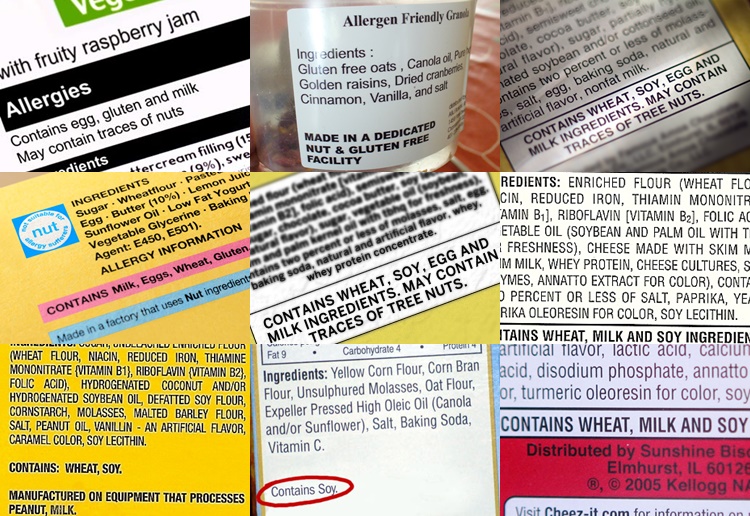
:max_bytes(150000):strip_icc()/Food-label-Envision-575f13f25f9b58f22ee9a2dc.jpg)
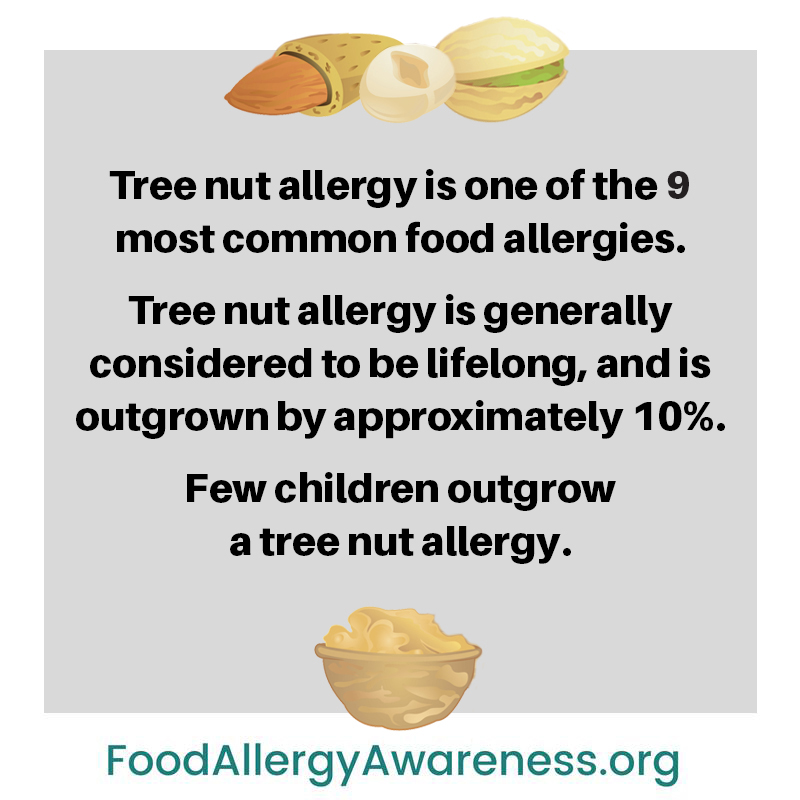
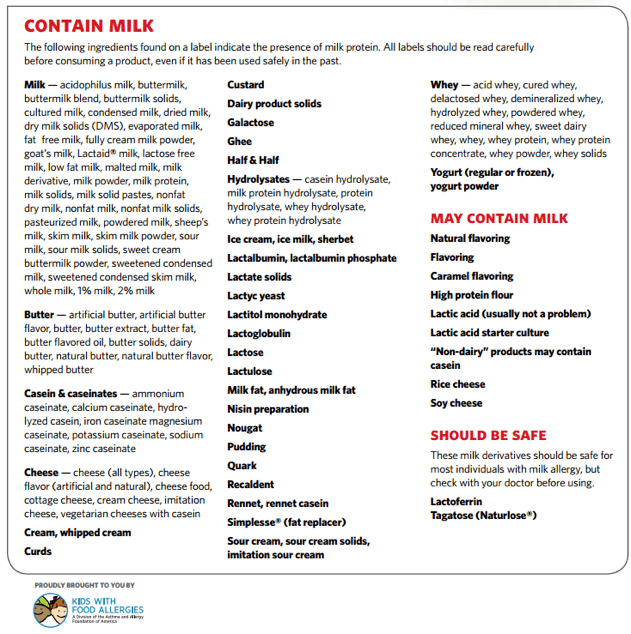

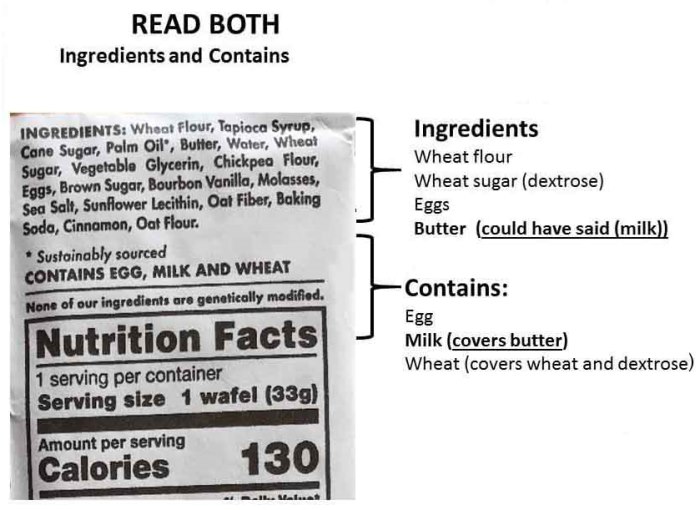
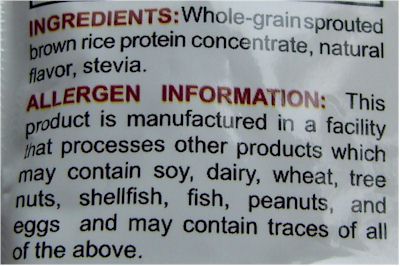
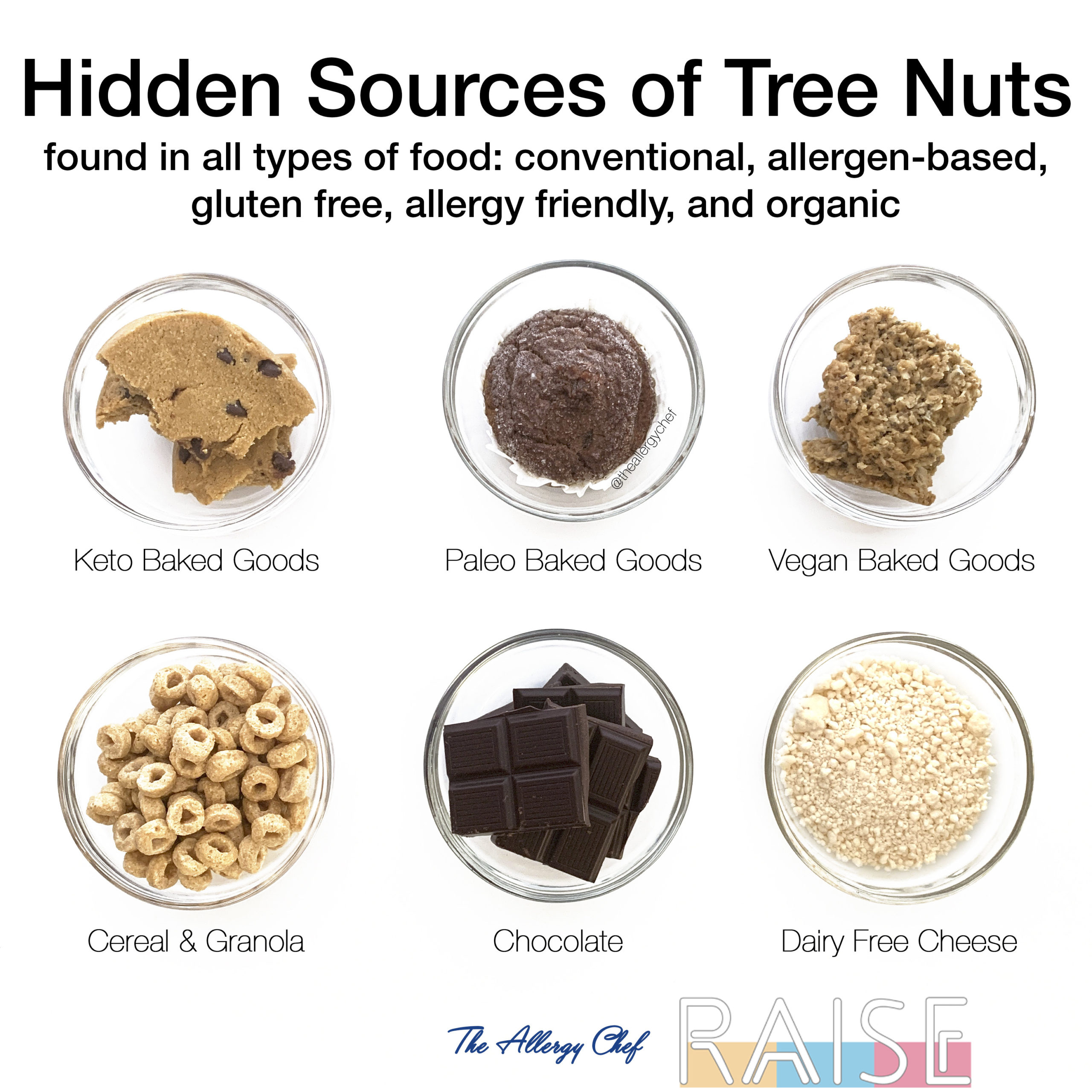


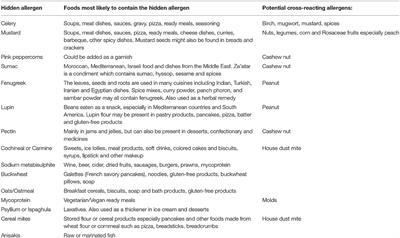
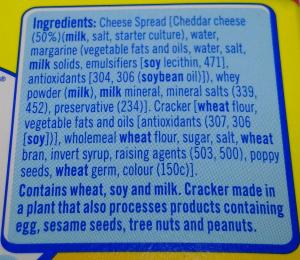
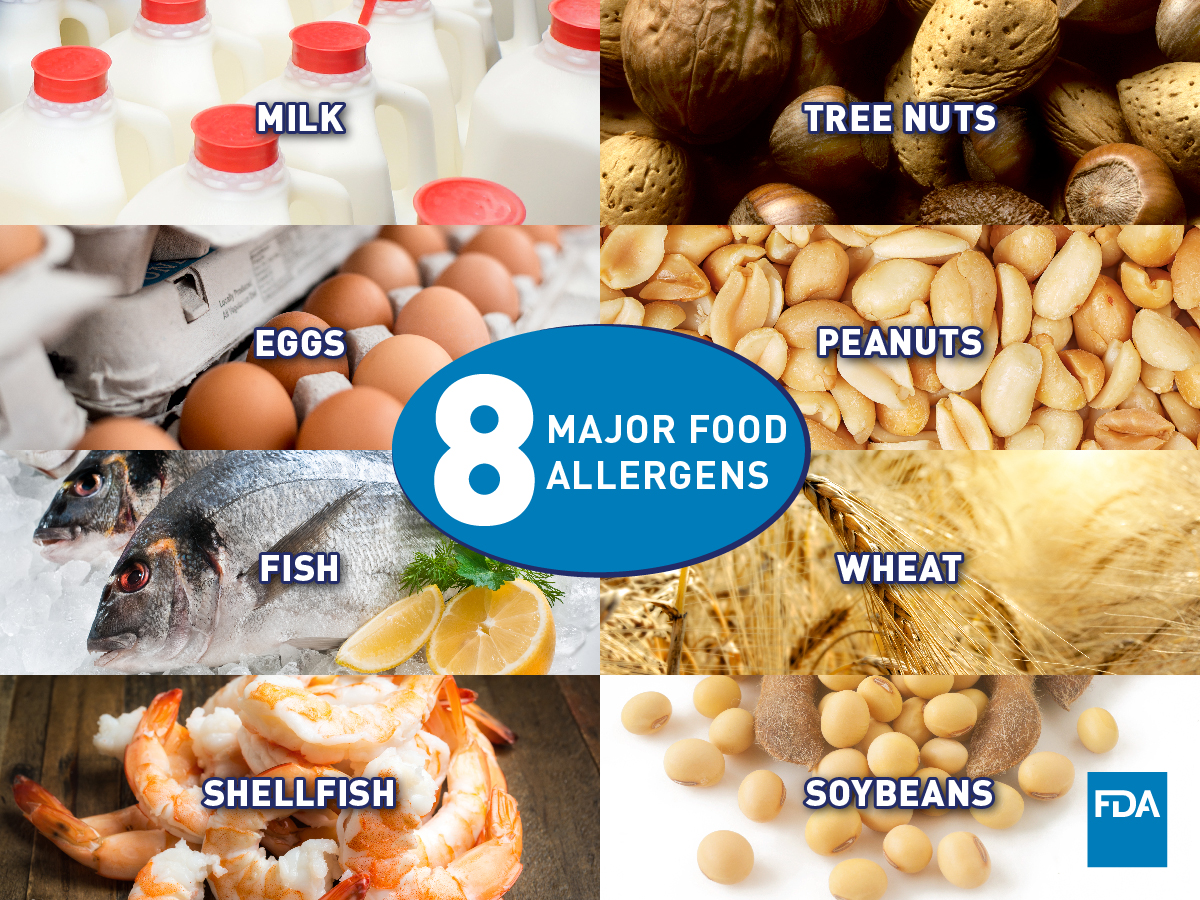
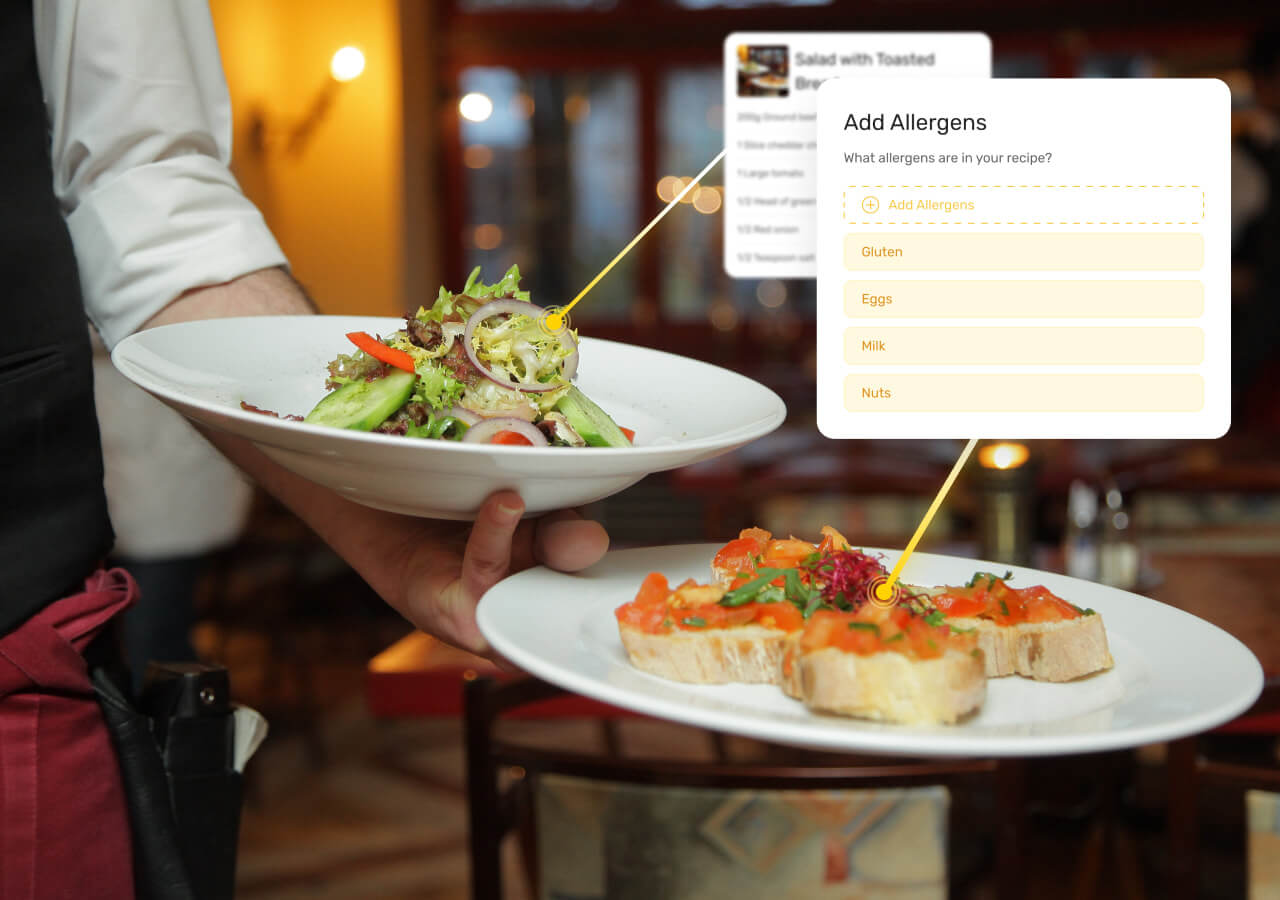
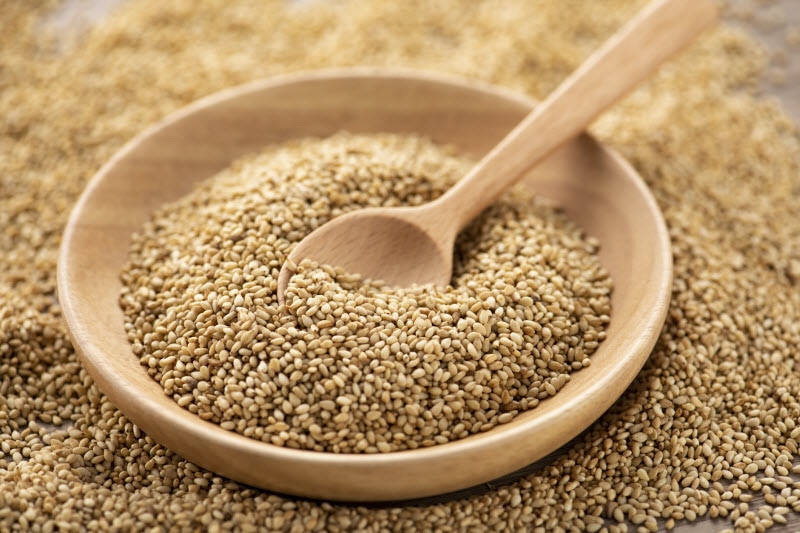


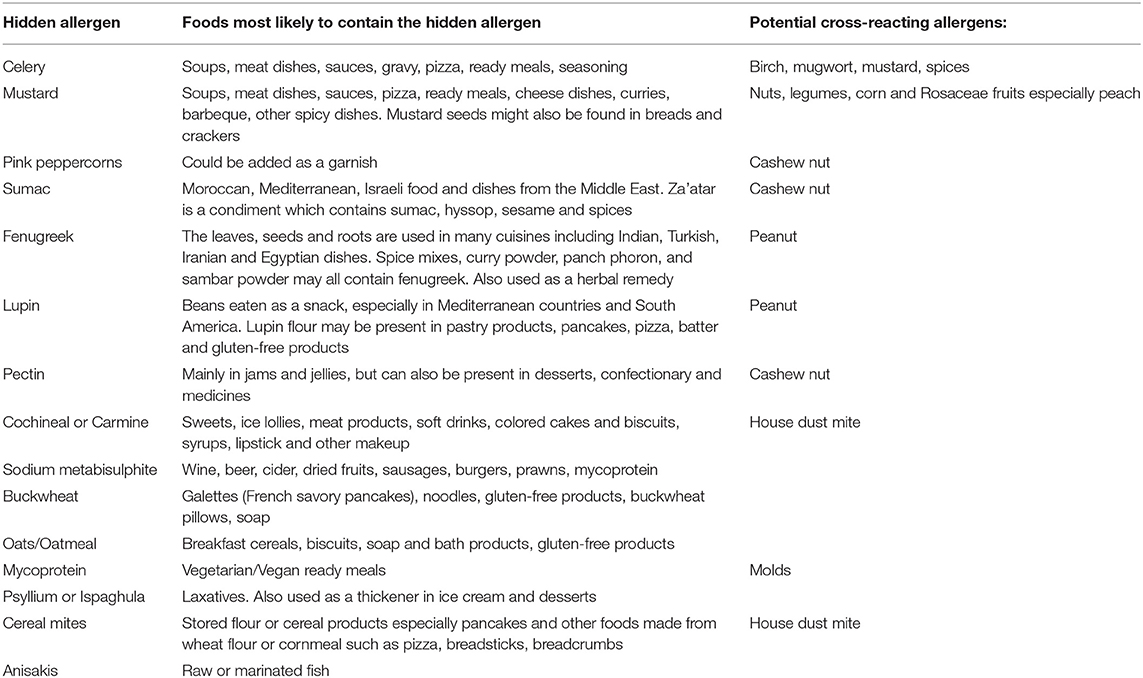


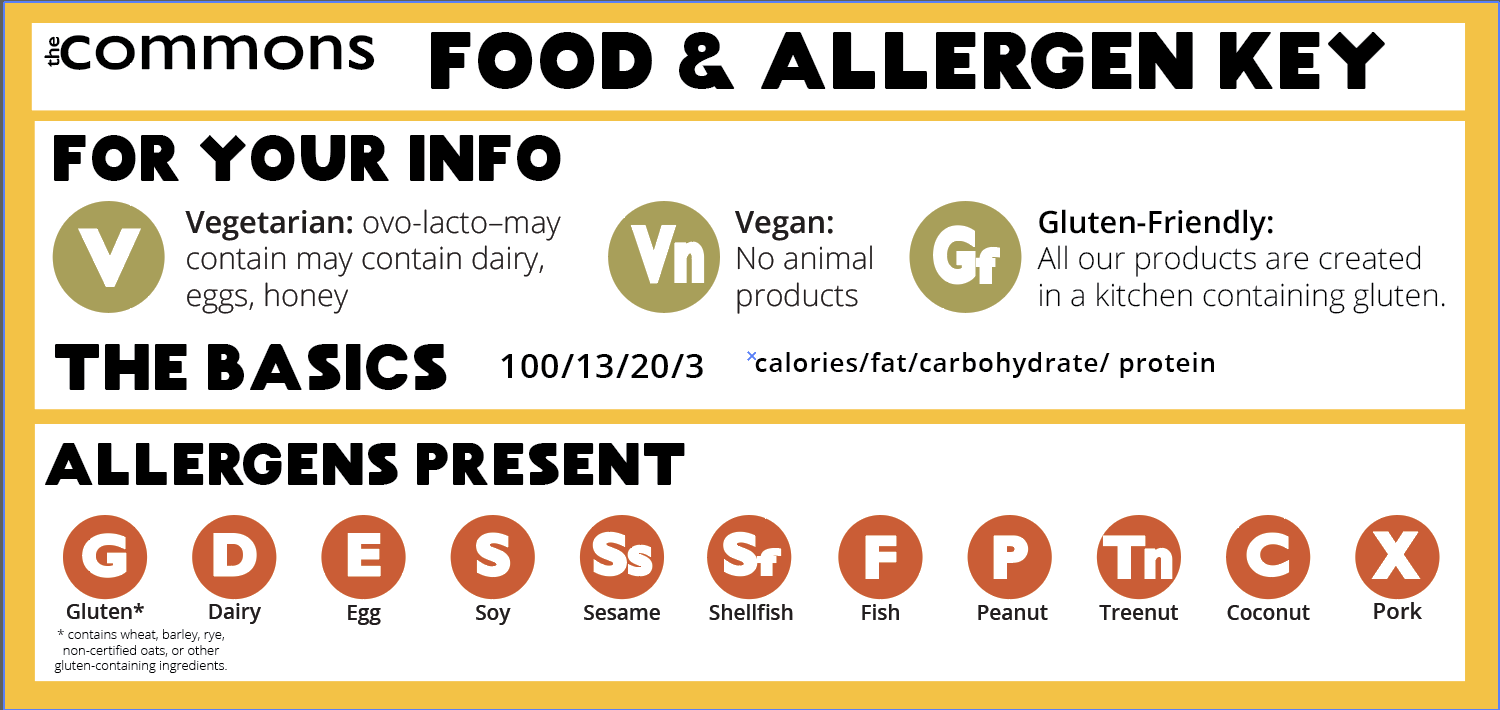
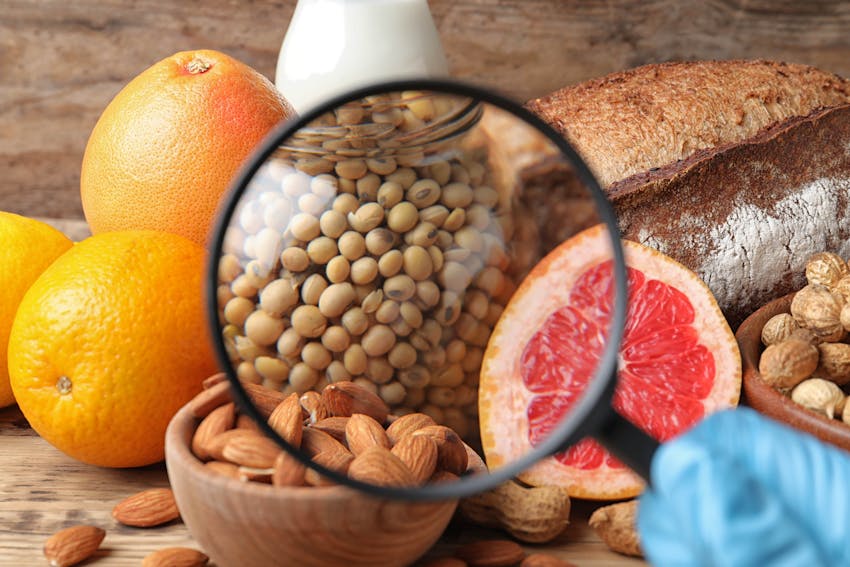
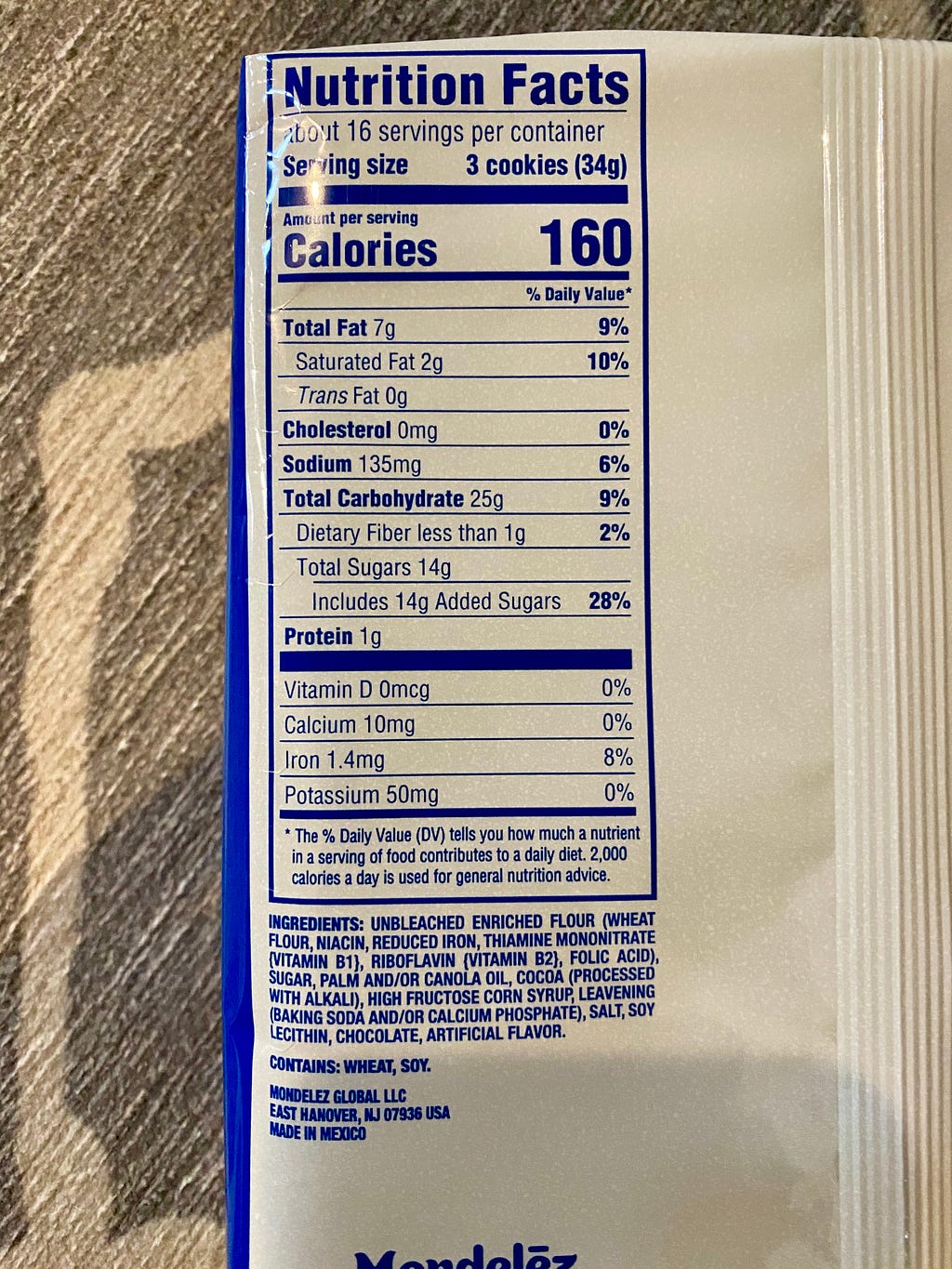
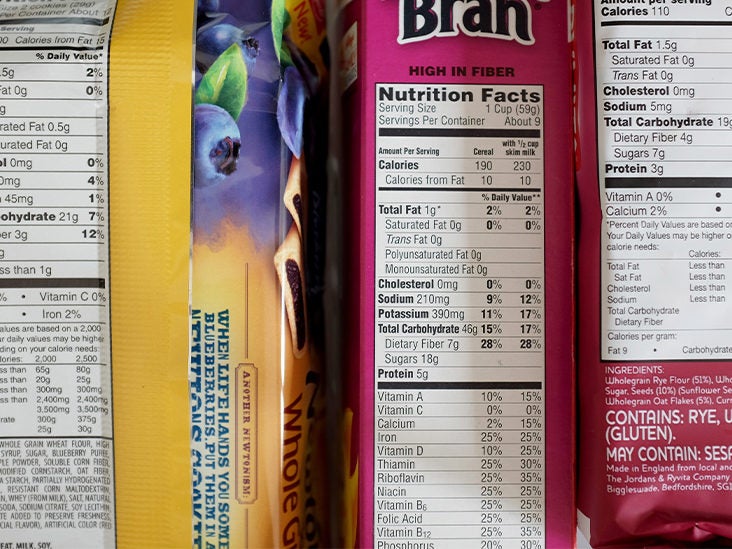

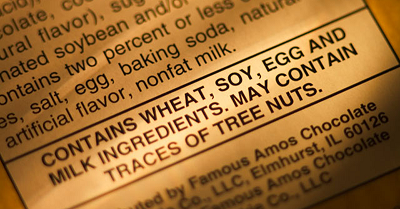



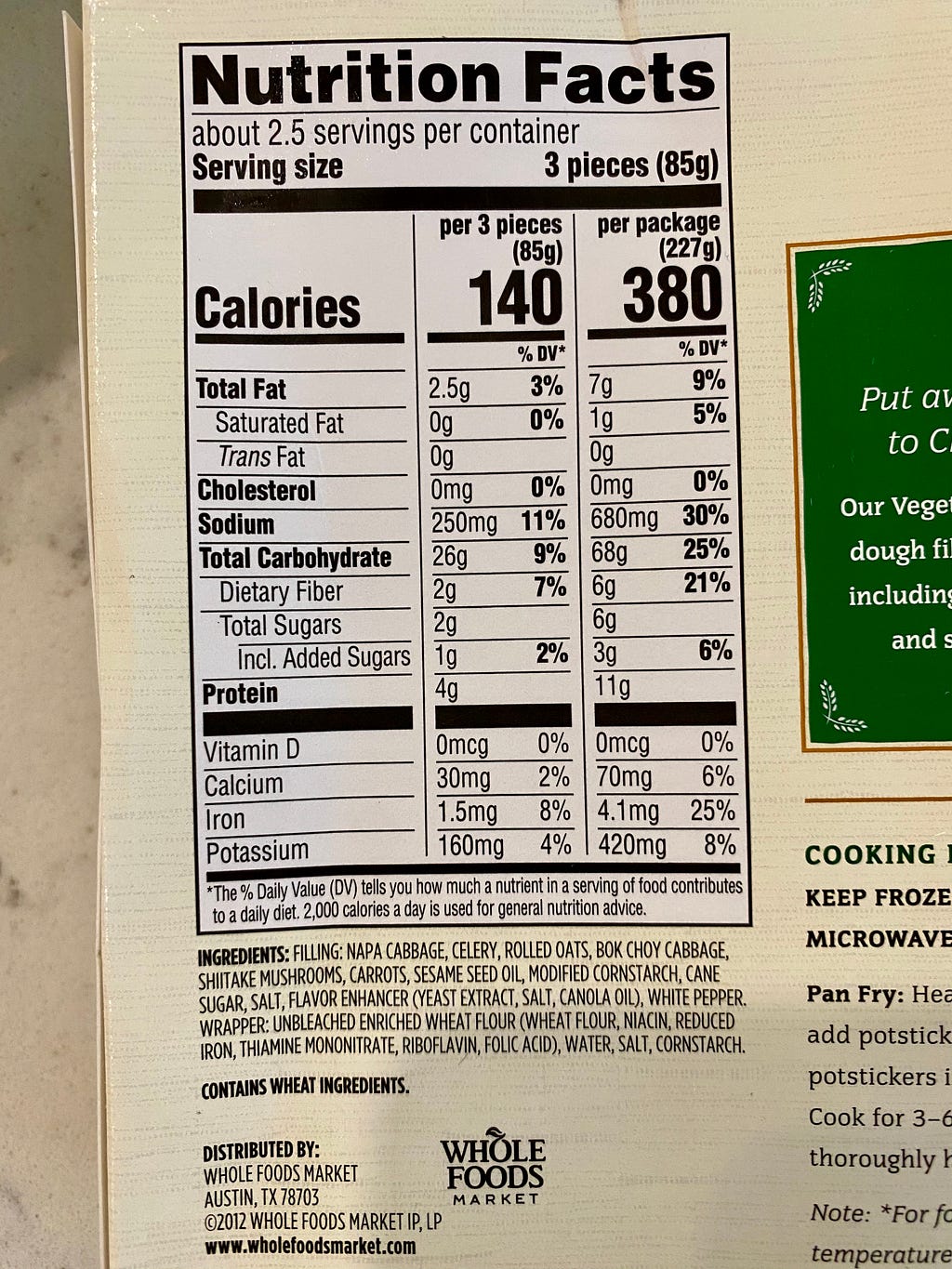
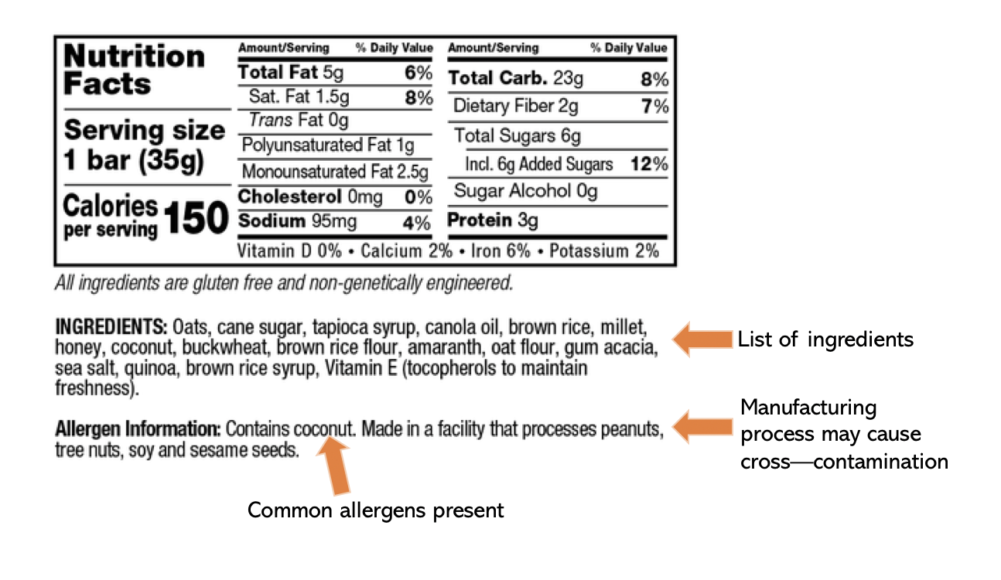

Post a Comment for "41 hidden allergens are always listed on labels"